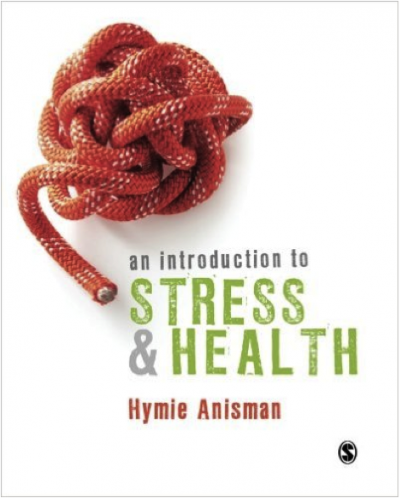 By Hymie Anisman, Dept. of Neuroscience, Carleton University
By Hymie Anisman, Dept. of Neuroscience, Carleton University
Last week’s blog outlined several issues related to addictions in general, and then considered some features that were unique to gambling addiction. A discussion (rant?) followed regarding the role of the gambling industry, as well as governments, in facilitating and fueling gambling, and what their creative solution was to enhance their profits, yet ‘seemingly’ acting responsibly to deal with the addictions that may emerge as a result of gambling. This amounted to donating a small percentage of gambling revenues to research that might point to ways to prevent gambling addiction or cure this condition if it developed. The motives and behaviors of the ‘gaming industry’ are clear; get the cash, but without being perceived as having contributed to negative outcomes.
There’s still another element that needs to be examined more closely. Specifically, the researchers grazing from the trough containing gambling revenues are in a bit of an ethical conundrum. They are, after all, taking money either directly or indirectly from the very organizations that contributed to the problem. A report by Rebecca Cassidy did a good job itemizing some of the factors that compromise gambling research, pointing out that too often research in this realm is devoid of disclosure policies, and as she put it, ‘many researchers are unreflective or outright defiant about industry influence’, and too often, a ‘partnership model’ seems to exist between researchers, regulators and policy makers, to the extent that they come to believe that ‘we’re all in this together’. A cozy little family!
 In other research domains, such as in the assessment of particular drugs to treat illnesses, scientists are required to disclose on research publications where funding was obtained, including private funding or from the public sector (e.g., drug companies), and to indicate whether the researcher had any vested interests (e.g., shares) in the company, or whether they sat on scientific boards or were being paid by the pharmaceutical company. Shouldn’t researchers studying gambling addiction similarly provide full disclosure? They typically disclose that their research was funded by such-and-such a granting agency, but shouldn’t they also make clear whether the funds actually came from (directly or indirectly) the ‘gaming industry’, including government operated gambling venues and activities. Furthermore, shouldn’t they be indicating whether they received funds, above and beyond those ear-marked for research, such as payment for their efforts (cash or in-kind)? How close is their relationship with the research funders, now or in the past? For instance, have they served as a paid consultant for gambling agencies?
In other research domains, such as in the assessment of particular drugs to treat illnesses, scientists are required to disclose on research publications where funding was obtained, including private funding or from the public sector (e.g., drug companies), and to indicate whether the researcher had any vested interests (e.g., shares) in the company, or whether they sat on scientific boards or were being paid by the pharmaceutical company. Shouldn’t researchers studying gambling addiction similarly provide full disclosure? They typically disclose that their research was funded by such-and-such a granting agency, but shouldn’t they also make clear whether the funds actually came from (directly or indirectly) the ‘gaming industry’, including government operated gambling venues and activities. Furthermore, shouldn’t they be indicating whether they received funds, above and beyond those ear-marked for research, such as payment for their efforts (cash or in-kind)? How close is their relationship with the research funders, now or in the past? For instance, have they served as a paid consultant for gambling agencies?
In her critique of the gambling business and research, Rebecca Cassidy pointed to examples of conflicts of interest, concluding that a trust deficit exists concerning what researchers in the field are saying in relation to gambling. As if on cue, some researchers began to protest, much too shrilly I believe, that they have never felt pressure to make or remove particular statements in their published reports. They go so far as to argue in favor of ‘transparency’ and even offer guidelines as to next steps, much as if there is a possibility, however remote, that there might be some wrong-doing out there, but they’re above the squalor. Aside from this apparent excessive protestation, I wonder if it dawned on them that such rebuttals would be better coming from someone who was at arms length from the issue. In the end, we still come back to the points made earlier. Is it enough to just disclose who funded a particular research project, or should disclosure include statements as to whether the researcher received, now or in the past, personal funding in cash or in-kind?
 It would be unwise and unconscionable to paint all gambling researchers with the same broad brush. Most of the research descriptions I’ve viewed on the sites provided by gambling agencies involved funding to excellent researchers, doing very worthwhile research. But, often there are obvious problems with some of the research. For starters, researchers are often restricted from access to casino patrons. Understandably, those running the casinos might be reluctant to have scientists bothering the clientele, or taking time away that could more profitably be spent gambling than answering questions. So, it’s often the case that scientists must conduct their research in ‘artificial’ gambling venues within university research settings, without any of the normal bells and whistles that are common in real casinos. Some university-based research has involved panoramic virtual reality displays or other venues where there are multiple slot machines, and other doo-dahs to create an environment that facilitates entry to the ‘trance-like state’ that often happens with gamblers. In other instances, however, there’s only a single lonesome slot machine in an otherwise barren room, and the roulette wheel is a home-made device that doesn’t come close to what one sees at a casino, resembling something seen at a children’s carnival (essentially a wooden version of a ‘Wheel of Fortune’). They can call it a ‘gambling lab’, but the reality is that it’s an unconvincing facsimile of I don’t know what, but certainly not a casino!
It would be unwise and unconscionable to paint all gambling researchers with the same broad brush. Most of the research descriptions I’ve viewed on the sites provided by gambling agencies involved funding to excellent researchers, doing very worthwhile research. But, often there are obvious problems with some of the research. For starters, researchers are often restricted from access to casino patrons. Understandably, those running the casinos might be reluctant to have scientists bothering the clientele, or taking time away that could more profitably be spent gambling than answering questions. So, it’s often the case that scientists must conduct their research in ‘artificial’ gambling venues within university research settings, without any of the normal bells and whistles that are common in real casinos. Some university-based research has involved panoramic virtual reality displays or other venues where there are multiple slot machines, and other doo-dahs to create an environment that facilitates entry to the ‘trance-like state’ that often happens with gamblers. In other instances, however, there’s only a single lonesome slot machine in an otherwise barren room, and the roulette wheel is a home-made device that doesn’t come close to what one sees at a casino, resembling something seen at a children’s carnival (essentially a wooden version of a ‘Wheel of Fortune’). They can call it a ‘gambling lab’, but the reality is that it’s an unconvincing facsimile of I don’t know what, but certainly not a casino!
As Cassidy indicated, even some of the research questions being funded are puzzling. Some granting agencies continue to fund projects to find out about the frequency of gambling problems (don’t we already know that it’s most common among those who can least afford it?). There are also studies that have attempted to assess neurobiological correlates of gambling by using imaging procedures to monitor brain changes while people are engaged in a virtual gambling exercise, which seems like a reasonable and interesting idea. Other studies opted to assess particular hormones (e.g., cortisol) in saliva in an effort to gauge stress responses. Remarkably, other studies have examined peptide hormones, such as ghrelin, in saliva even though these molecules are simply too large to be reliably detected in saliva, and are most certainly not relevant to activation of specific types of receptors present in brain regions associated with reward processes or impulsivity that might be linked to addictions.
There have also been many funded studies that attempted to get people to stop gambling, although these studies have unfortunately not been particularly successful. This is not unexpected as once well-entrenched, any addiction is difficult to eliminate. Some of these studies were, to be fair, grounded on reasonable theoretical premises (e.g., using particular therapy or other strategies to curb addiction). In other instances, the approaches used are, it seems, somewhat naïve. In one case, for instance, researchers chose to examine whether pop-up messages on slot machines reminding players to ‘bet within their limits’ (an oxymoron, if I’ve ever heard one, akin to ‘doing irrational things rationally’) would diminish gambling. Is it remotely possible that this sort of messaging will have much of an effect on a pathological gambler busy feeding their cravings at a casino? Nothing else has worked to curb their habit, and if their decision-making abilities have been hijacked (as in the case of drug addictions), it’s hardly likely that they’ll pay any attention to such pop-up message. Certainly not if these messages are divorced from other extensive therapeutic programs? Perhaps the gambling organizations sponsoring such research are aware that this strategy won’t work, and thus there’s no danger of their patrons not coming back; however, it provides these agencies with legitimacy regarding their willingness to deal with the problems.
 Governments aren’t about to abandon their pro-addiction policies. They’ve become addicted to the gambling profits, just as they’re greedy for the profits from alcohol and cigarettes. So, I suppose that the alternative is that we make the best of the situation. Indeed, I wouldn’t suggest that revenue from gambling not go into research, but this should be done responsibly. Rather than each province, state, or private sector company running their own granting agency, each having to deal with independent up-front administrative costs, it would be much more efficient to have research funding consolidated so that grants are awarded by a single agency with a track record in this capacity (e.g., Canadian Institutes for Health Research; CIHR). If nothing else, such an agency would be several degrees removed from the gaming establishment, and perhaps gambling researchers will have less of an opportunity to cozy up to the funders. Otherwise, somebody more suspicious than me might conclude that the fox is guarding the henhouse.
Governments aren’t about to abandon their pro-addiction policies. They’ve become addicted to the gambling profits, just as they’re greedy for the profits from alcohol and cigarettes. So, I suppose that the alternative is that we make the best of the situation. Indeed, I wouldn’t suggest that revenue from gambling not go into research, but this should be done responsibly. Rather than each province, state, or private sector company running their own granting agency, each having to deal with independent up-front administrative costs, it would be much more efficient to have research funding consolidated so that grants are awarded by a single agency with a track record in this capacity (e.g., Canadian Institutes for Health Research; CIHR). If nothing else, such an agency would be several degrees removed from the gaming establishment, and perhaps gambling researchers will have less of an opportunity to cozy up to the funders. Otherwise, somebody more suspicious than me might conclude that the fox is guarding the henhouse.
Hymie Anisman has recently authored two book providing an evidence-based approach to understanding the role of stress on human health, and identifying characteristics and behaviours that render people more vulnerable or resilient. Both are available at Amazon.ca

